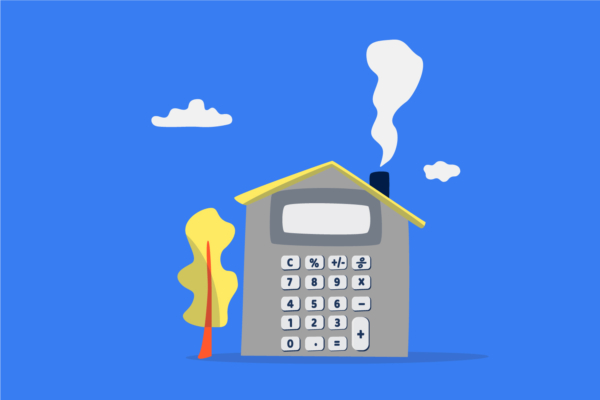
What is a Homestead Exemption?

Property tax is a major source of income of local Texas governments. In fact, property taxes provide more tax dollars for local services in the state than any other source. Taxes are how schools, libraries, city streets, county roads, and emergency responders are paid for.
Despite the good they do for our communities, the cost can be steep for homeowners. With increasing property prices throughout the state and corresponding property tax increases, many are wondering what they can do to lessen the burden.
One way to do this is through a property tax exemption. In this article, we’ll take a look at one of the most common in Texas: the homestead exemption.
What is a homestead exemption?
To understand how the homestead exemption works, you must first know a little bit about how property taxes work in the state of Texas.
First, property taxes are not a tax levied by the state. Rather, they are a locally assessed and locally administered tax. This means that a lot of decisions around homestead exemptions are left up to your local taxing units such as your city, county, school district, and special districts.
Second, property taxes are ad valorem tax, which means that the taxes are based on the assessed value of the property. So the more your house is worth, the more you’ll pay in taxes.
Exemptions work by removing a portion of the appraised value, and thus taxable amount, from your home. For instance, a $40,000 exemption does not mean a $40,000 discount from your tax bill. Instead, it reduces the value of your home in the eyes of the government by that much, lessening your overall tax burden.
The most common of these is the homestead exemption, which allows homeowners to remove a portion of a property’s appraised value from taxation just for living in their owned home.
From Mortgages to Home Equity Loans
Our local, award-winning lending team is ready to help you begin today.
How much is a homestead exemption?
The exact amount that you may be eligible for depends on the county you live in. However, the Texas Comptroller outlines five types of homestead exemptions that people may receive:
- School tax exemption: All residence homestead owners are allowed a $40,000 exemption for school district taxes.
- County taxes: Some counties collect special taxes for farm-to-market roads or flood control. If a county collects that tax, residence homesteads are allowed an additional $3,000 exemption.
- Age 65 or older and disabled exemptions: If you are disabled and/or age 65 or older, you may qualify for an additional $10,000 exemption on school district taxes.
- Optional percentage exemptions: Taxing units— such as a school, county, city, or special district— may offer additional exemptions up to 20% of a home’s value. Taxing units decide whether to offer this additional exemption, and, if so, at what percentage.
- Optional age 65 or older or disabled exemptions: Taxing units may also offer an additional exemption to people age 65 and up or disabled.
Not sure what exemptions are available in your county? Visit your local appraisal district’s website or contact their customer support to find out.
Do I qualify for a homestead exemption?
Simply owning a home does not automatically qualify you for a homestead exemption. In Texas, you must meet certain criteria in order to take advantage of the tax break:
- The home must be the homeowner’s principal residence. A principal residence is where a person lives most of the time. A principal residence homestead can be a separate structure, condo, or manufactured home located on owned or leased land. Up to 20 acres of land can also be included in the homestead exemption. The individual living in the home must own it and live in the home as of January 1 of the tax year.
- The home’s owner must be an individual. Corporations or other business entities do not qualify.
If you own multiple properties, you can only claim a homestead exemption on one of those properties— even if they are in other states. Rental properties, for example, do not qualify as a principal residence since you, the owner, don’t live in the house.
If you temporarily move away from your house, you may continue to receive the exemption as long as you don’t establish a permanent residence elsewhere. You must also intend to return within two years. The only exceptions to this are military service within or outside of the United States or living in a healthcare-related or nursing home facility.
There are also unique rules pertaining to property taxes on inherited homes. For more information about homestead exemptions on inherited property, visit this Texas Law Help article and consult a tax professional.
How do I apply for a homestead exemption?
Homestead exemptions aren’t automatically applied to your tax bill. In order to receive this tax break, you must complete and return the Application for Residence Homestead Exemption for the county you live in.
Be sure to also read the FAQ page of your county’s Appraisal District website, as some counties have additional requirements. Here’s where you can find that information for Central Texas counties:
- Travis County Tax Office
- Williamson County Tax Assessor Collector
- Caldwell County Applications and Forms
- Hays County Application
- Bastrop County Application
Your driver’s license address should match the property address for which you are applying for the exemption. You can include a copy of that driver’s license or a copy of the application for your new one.
Owners of manufactured homes must provide additional documentation. If you live in Travis County, you must also have the affidavit at the end of the application notarized.
Once you turn 65 or become disabled, you’ll also need to fill out and submit another application to get the additional exemptions.
Save On Your Next Tax Bill
If you own your principal residence and haven’t applied for the homestead exemption, you could be missing out on your tax savings. The exemption can shave $40,000— or much more, depending on your Texas county— from your home’s appraised value each year. A lower home value equals a lower tax bill!
Ready to get prequalified?
Apply today and start your journey toward your new home.

